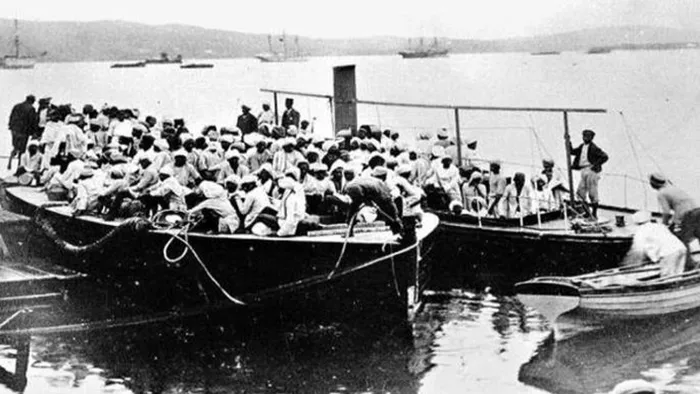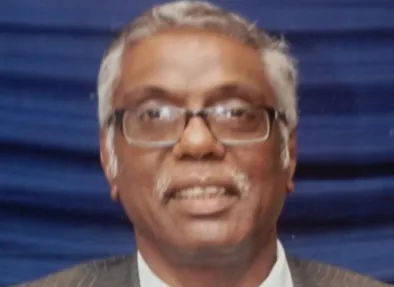
Indian South Africans are descendants of indentured labourers. To build a just and cohesive future, the writer says South Africa must engage with every community’s story, not only in the past tense, but in the living reality of today’s challenges.
Image: South African History Online
PRESIDENT Cyril Ramaphosa’s announcement of a National Dialogue is a powerful call to action. It is not a mere event or ceremonial gathering, it is a participatory, unfolding process that will stretch from grassroots consultations to a National Convention, aiming to reset our democratic compact and imagine a shared South African future.
As the first phase begins on August 15, it is vital that the concerns of all communities are placed firmly on the agenda. This includes the Indian minority, whose contributions and challenges remain under-recognised in national discourse.
The National Dialogue promises to be inclusive, representative, and future-focused. Civil society, political parties, traditional and religious leaders, workers, youth, and other key voices are to be engaged in conversations that will culminate in a second National Convention. There, a common vision and programme of action will be adopted.
An Eminent Persons Group will help guide this historic initiative, ensuring it is more than rhetoric, it must be renewed in action. Yet, if this dialogue is truly to reflect the diversity of our nation, it must acknowledge the unique experiences and present-day realities of Indian South Africans. The prognosis for this community, which has been rooted in South African soil since 1860, is shaped by a history of marginalisation, contemporary economic pressures, and a search for identity within a changing socio-political landscape.
Indian South Africans are descendants of indentured labourers and free migrants who came to work in the sugar cane fields of Natal, later becoming traders, workers, and professionals despite the systematic discrimination of colonialism and apartheid. From forced removals under the Group Areas Act to limited political representation under white rule, their history is one of struggle and resilience.
Post-apartheid freedom offered formal equality, but the legacy of exclusion persists. Indian South Africans remain a small minority navigating between integration and the preservation of cultural identity. This balancing act is complicated by rising economic inequality, political fragmentation, and at times, resurgent xenophobia and racial scapegoating.
Economically, the Indian community often occupies a middle-tier status, better off than many, but still vulnerable. Many small businesses, particularly in logistics, trade, and manufacturing, are threatened by infrastructure failures, load-shedding, and water shortages. While affirmative action is vital for redressing historical wrongs, it can create new forms of exclusion when not applied sensitively.
The perception of Indian South Africans as a "privileged" group masks the deep inequalities within the community itself.
In recent years, skilled professionals have increasingly sought stability abroad, while working-class Indians remain in under-resourced townships like Chatsworth, Phoenix, and Lenasia, grappling with drugs, unemployment, and crime. These townships are also increasingly diverse, as African and Indian communities live side by side, an opportunity for unity, but also a potential flashpoint if tensions are not addressed through inclusive dialogue.
The Indian identity in South Africa is multifaceted, comprising Hindu, Muslim, and Christian faiths, and languages like Tamil, Hindi, and Gujarati. This internal diversity enriches the cultural landscape of the nation. Indian festivals, places of worship, and traditional practices remain vibrant, even as the younger generation increasingly blends identities and adopts cosmopolitan lifestyles.
To build a just and cohesive future, South Africa must engage with every community’s story, not only in the past tense, but in the living reality of today’s challenges. For Indian South Africans, this means: recognising historical contributions and present vulnerabilities; ensuring meaningful political representation in both local and national processes; supporting economic resilience through inclusive growth strategies; protecting cultural expression while promoting intercultural solidarity; addressing township neglect, crime, and substance abuse with tailored, community - driven interventions.
The National Dialogue provides a rare moment of reflection and reimagining. If we are to emerge stronger from the crises of our time - inequality, political division, climate shocks, and social fragmentation, we must build a South Africa where every community sees itself in the national mirror.
Indian South Africans, while a minority, are not marginal to the national story. Their inclusion in this dialogue is not a favour; it is a necessity for a credible, durable, and democratic social compact. Let us speak not just of unity, but of justice, rooted in recognition, responsibility, and renewal.

Jerald Vedan
Image: Supplied
Jerald Vedan is an attorney, community leader, and social commentator based in KwaZulu-Natal.
** The views expressed do not necessarily reflect the views of IOL or Independent Media.
Related Topics: